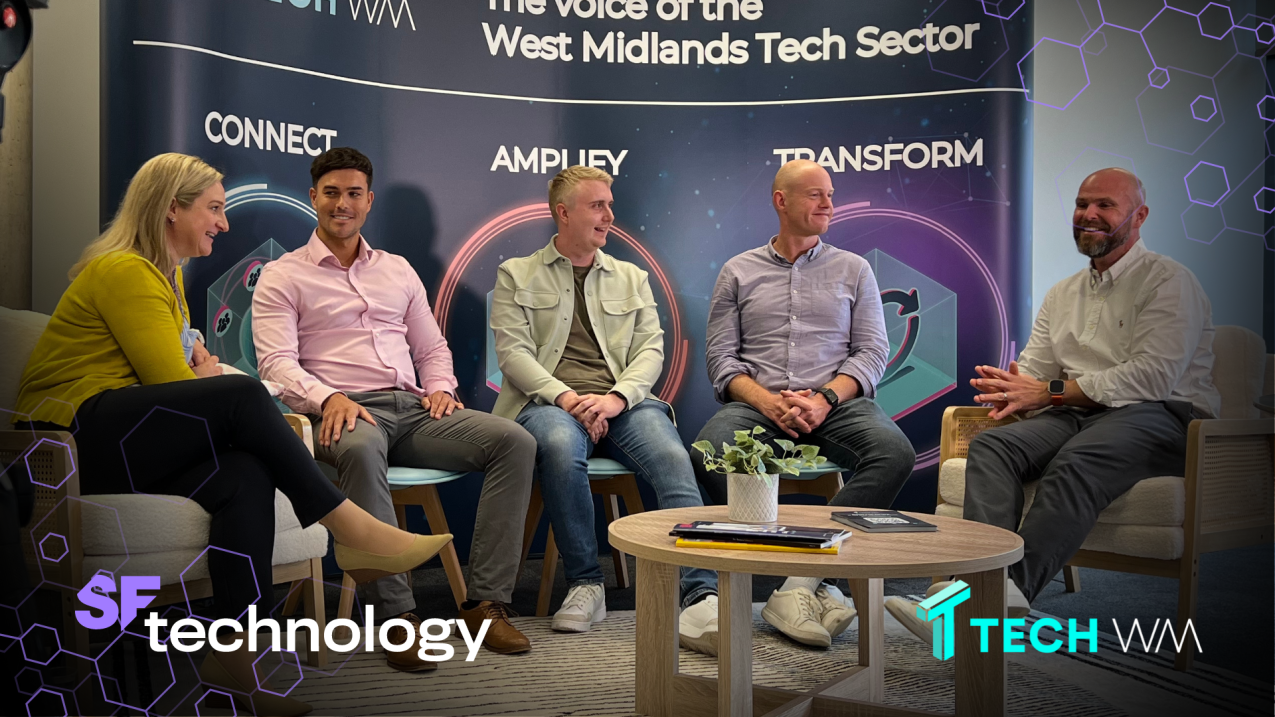
Addressing the Digital Skills Gap: SF Technology on the Future of the Tech Workforce

In an ever-evolving tech landscape, the demand for digital skills continues to grow at an unprecedented rate. As part of a recent 'Tech West Midlands LinkedIn Takeover' - SF Technology, sat down with Vickie Pargetter-Garner, Director of Digital Skills and Commercial Impact at Tech West Midlands, to discuss how businesses in the West Midlands can stay ahead by developing and attracting the right talent. The conversation shed light on the most in-demand skills, the challenges facing the region, and the opportunities for reskilling and upskilling within the workforce.
Mike Lattimer, Managing Director of SF Technology, emphasised the region's ambitious plans to grow the tech ecosystem, with a target of £100 billion by 2030. “None of that can be done without the right people,” he said. “And the right people need the right skills and attitudes. We’re all working together—from local authorities and universities to businesses like ours—to ensure we’re training, developing, and attracting the talent we need.”
The West Midlands, home to a burgeoning tech sector, is increasingly seen as a prime location for tech-enabled businesses. But as Rory Winters, a Technology Business Manager, pointed out, the focus has shifted: “Post-Covid, there’s strong demand from tech-enabled businesses, like property and financial services, that you wouldn’t traditionally associate with needing engineers. However, start-ups and scale-ups are seeing a dip due to a lack of investment. Hopefully, we’ll see that pick up soon.”
One of the key challenges highlighted during the discussion was the growing need for AI and data science expertise. As Alex Ward, who specialises in data and AI, explained: “When ChatGPT first emerged, businesses were eager to implement AI solutions. But without the right data infrastructure, they found they weren’t getting the results they needed. The big conversation now is around data governance—making sure everything is in place before applying AI to get predictive results.”
Despite the challenges, AI remains one area where junior professionals are making significant strides. “If you’ve got a passionate graduate with AI skills, they’re getting jobs,” Alex added. “It’s an exciting time for those entering the field, and we’re seeing more opportunities for individuals to pivot into AI, even from non-technical backgrounds.”
The panel also touched on the importance of soft skills in bridging the gap between technical and non-technical teams. “The communication gap between techies and non-techies within organisations is something we see a real demand for,” noted Jack Stockport, Business Manager at SF Technology. “It’s not just about having technical skills—it’s about being able to communicate and collaborate effectively across the business.”
This ability to collaborate and adapt was a recurring theme throughout the discussion. The need to upskill and reskill, particularly in the fast-changing digital landscape, offers a unique opportunity for professionals at all levels. As Mike put it, “Someone could start as a junior AI engineer today, and with dedication, they could become one of the most experienced people in the field within five years. We’re investing heavily in this space, and it’s exciting to think about where we’ll be in the future.”
SF Technology and its partners are committed to addressing the digital skills gap in the West Midlands by working collaboratively to create new opportunities for talent across the region. With investment in education, boot camps, and on-the-job training, the region is poised to not only meet the growing demand for digital skills but to lead the way in the UK’s tech revolution.
For a deeper dive into the future of digital skills, join the conversation at the Digital Skills Symposium on 22nd October at The Exchange, where SF Technology and industry leaders will explore the latest trends and opportunities in the market.
Watch the full discussion here: LIVE in conversation: SF Technology & TechWM
Related News

Social media has drastically improved the way we recruit within SF Recruitment.
What is it, then, about using LinkedIn, Twitter, Facebook, Google+ et al that seems to seriously boost your prospects of landing that job?




